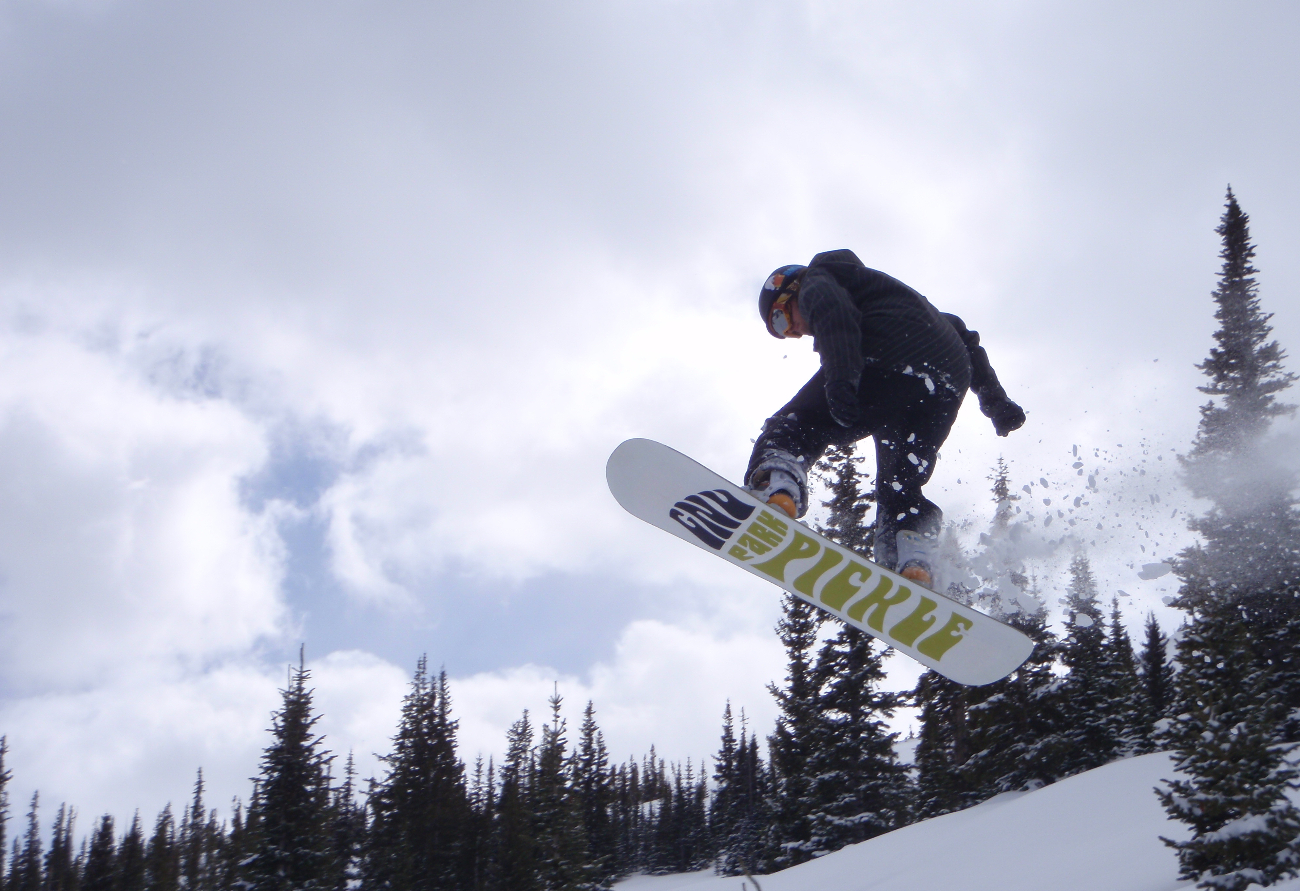
Flickr/Heath Alseike

Audio By Carbonatix
The Colorado Supreme Court recently agreed to hear Litterer v. Vail Summit Resorts, a case that could decide whether buying an Epic Pass can silently erase an already-filed lawsuit and reset the boundaries of ski area liability.
The case stems from a December 2020 collision at Breckenridge Ski Resort between a snowboarder and an employee on a snowmobile. According to internal resort documents revealed in discovery and quoted in Litterer’s attorneys’ opening brief, snowboarder John Litterer was riding the Wirepatch run when he was funneled into a mandatory left turn; the straight-ahead route was early-season terrain and was roped off. Turning around a blind corner, a snowmobile driven uphill by a resort worker collided with him so violently that the vehicle’s metal struts were bent, court filings say.
Litterer’s attorneys say the employee’s actions violated Breckenridge’s parent company’s internal snowmobile manual, which instructs operators to slow down and move to the outside edge of blind turns so downhill riders can see them. Ski patrol notes in the filings say Litterer was urinating blood and required emergency transport off the mountain after the collision.
Litterer sued Vail Summit Resorts, the owner of Breckenridge Resort, in 2022 for negligence, negligence per se and willful and wanton claims. A district judge ruled there was enough evidence to pursue exemplary damages, meaning a jury could consider whether the resort acted recklessly.
But the lawsuit never reached a jury because of the sprawling waivers that come with every purchase of an Epic Pass.
Always Read the Terms and Conditions
When Litterer bought his 2020-2021 Epic Pass, he accepted the standard release language, as we all do when we purchase lift tickets at mountain resorts. Vail Summit’s lawyers argued that this waiver barred his claims, but the most consequential waiver came later. In 2022, while his litigation was proceeding, Litterer bought a new Epic Pass online. That pass included language releasing “any and all claims” he “may now have,” including those from “anything that has happened up to now.”
The lower court accepted that interpretation and ruled that by clicking a box, Litterer had effectively dismissed his own lawsuit. The Colorado Court of Appeals affirmed and left Vail Summit Resorts free to seek about $60,000 in litigation costs from Litterer, his lawyers say.
The state Supreme Court’s recent decision in Miller v. Crested Butte is central to Litterer’s appeal. Last year, the justices ruled that ski area waivers cannot eliminate claims based on statutory safety duties. If a statute sets a standard of care and a skier can show that the resort violated it, that violation can support negligence per se, and private waivers cannot overrule those claims.
Litterer’s lawyers argue that Colorado’s Snowmobile Safety Statute operates the same way. The law requires operators to drive in a careful and prudent manner with due regard, and it prohibits operating a snowmobile in a way that shows wanton or willful disregard for safety. According to the snowboarder’s attorneys, the Breckenridge employee violated both the statute and the resort’s own manual, putting the claim within a protected category created from the Crested Butte case.
The Supreme Court agreed to review whether Litterer truly waived all claims by purchasing a 2022-23 Epic Pass, whether his claim was wrongly dismissed, and whether negligence per se claims (where a statute sets the standard) can be barred at all under Miller v. Crested Butte. Litterer filed his opening brief on October 30, and Vail Summit’s response is expected this winter. Oral arguments could take place in early 2026.
The ruling will determine whether Litterer can put his crash claim in front of a jury, or whether the modern lift ticket waiver continues functioning as one of the most powerful liability shields in Colorado law.
A spokesperson for Vail Summit Resorts told Westword in an email, “We don’t comment on pending litigation.”